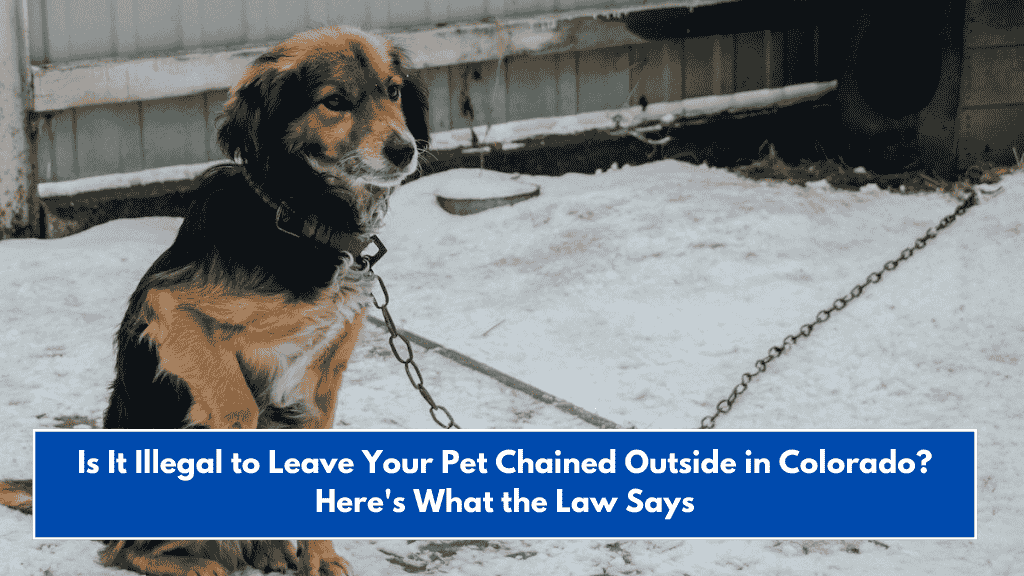In Colorado, it is not outright illegal to tether or chain your pet outside, but there are significant restrictions designed to protect animal welfare. Both state and local laws regulate how, when, and for how long an animal can be tethered. Violating these laws can result in citations for animal cruelty or neglect.
Statewide Regulations
Colorado does not have a single, uniform statewide law that bans tethering altogether. However, state anti-cruelty statutes can apply if an animal is chained in a way that causes suffering, injury, or neglect. In practice, this means that tethering a dog for excessive periods, especially in unsafe conditions, can be prosecuted as animal cruelty.
A commonly cited standard is that an animal should not be tethered for more than 12 hours in a 24-hour period. This guideline is often referenced by animal control officers and local authorities, though the exact limit may vary by municipality. If a dog is always chained up, it is likely in violation of local ordinances, and animal control can intervene.
Local Ordinances
Many Colorado cities and counties have their own, often stricter, tethering laws:
- Parker, Colorado: It is unlawful for a dog’s primary means of containment to be a tether attached to a stationary object. Tethering is only allowed under specific conditions:
- The tether must be at least three times the length of the dog (from nose to tail base).
- Dogs may not be tethered for more than three consecutive hours without at least a one-hour break, and total tethering time cannot exceed eight hours in a 24-hour period.
- Tethering must not cause risk of injury, strangulation, or entanglement.
- Owners using tethering as the main containment method are given 30 days to find an alternative after being notified by animal welfare officers.
- Weather Restrictions: In some Colorado jurisdictions, it is illegal to tether animals outside during extreme weather-such as temperatures below 40°F or above 90°F, or during rain, sleet, hail, or snow-for more than 30 minutes. Tethering in these conditions is considered animal cruelty and is a Class 1 municipal offense.
General Requirements
Across Colorado, when tethering is permitted, the following standards generally apply:
- Tethers must be long enough (usually at least 10 feet) to allow reasonable movement, but short enough to prevent the animal from reaching public sidewalks or property lines.
- Tethers must not be excessively heavy or cause harm.
- Animals must have access to adequate shelter, food, and water at all times.
Enforcement and Penalties
Violations of tethering laws can result in citations, fines, and potentially criminal charges for animal cruelty. Local animal control officers are responsible for enforcement and may issue warnings or citations based on observed violations.
While it is not categorically illegal to leave your pet chained outside in Colorado, there are strict regulations regarding the duration, conditions, and methods of tethering. Chaining a pet outside for extended periods, especially in adverse weather or without proper care, is likely to result in legal consequences under both local ordinances and state animal cruelty laws.














